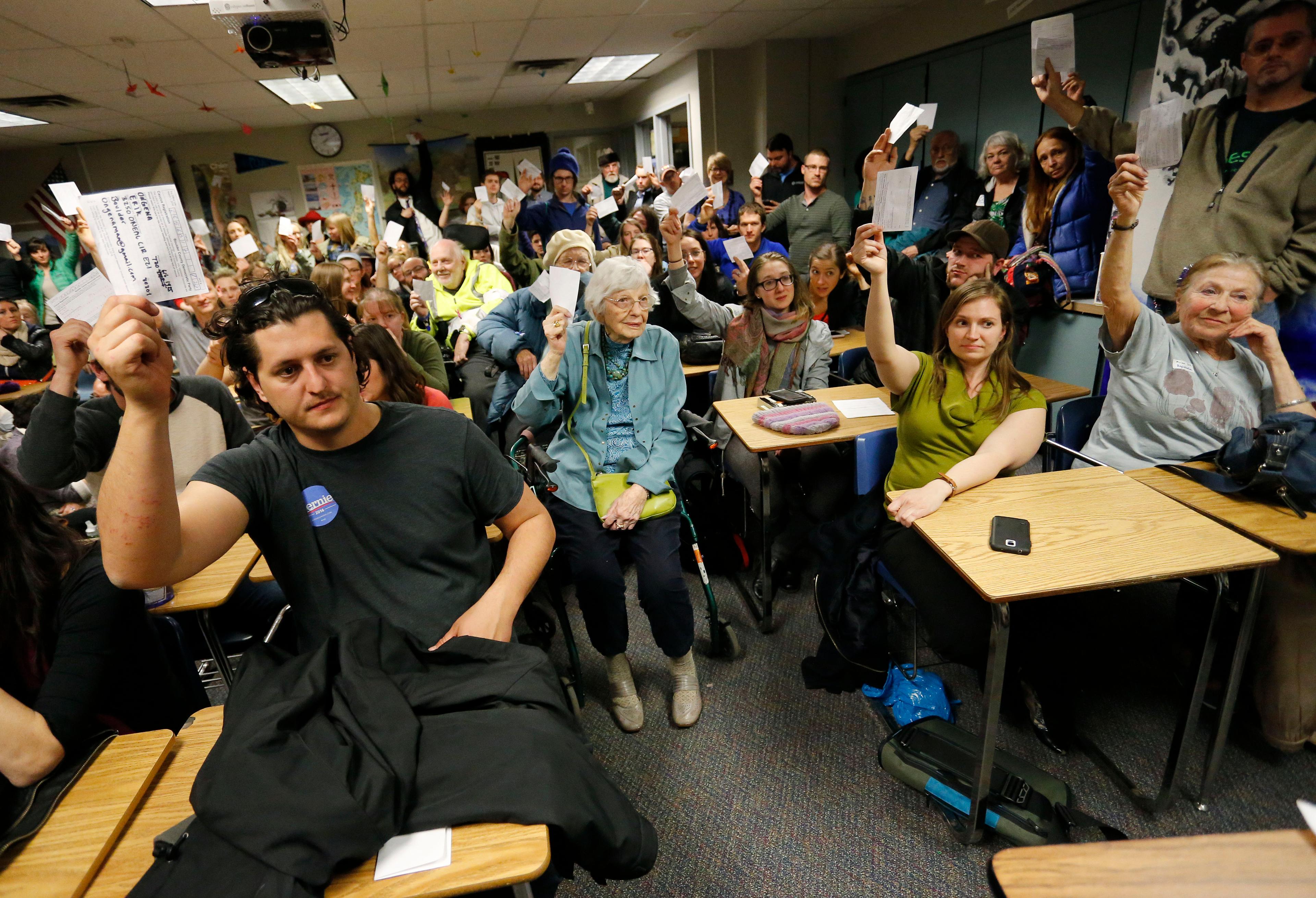
The state Democratic and Republican parties will call their members to thousands of meetings spread across hundreds of homes and public facilities in Colorado on Saturday.
Neither party expects to cancel their sprawling precinct caucus meetings in response to the appearance of presumptive positive cases coronavirus in Colorado. The caucuses — held in the hundreds of political precincts that cover the states — are an important step toward the November elections.
On Friday afternoon, the city of Denver announced two people had tested positive for the respiratory virus, in addition to two presumptive positive cases announced by Gov. Jared Polis on Thursday. Another positive case was announced Friday in El Paso County.
“No major concerns right now. It’s something we’ll monitor, but at this time, we don't see a reason to interrupt the process,” said Lx Fangonilo, executive director of the Colorado Republican Party.
Democratic officials sent guidance to caucus organizers, said party chairwoman Morgan Carroll.
"Some of it's down to Clorox wipes and things actually at the event itself," Carroll said.
The party's also urging people with symptoms — or who have encountered others with symptoms — to stay home. The party also will remind people that they can file paperwork remotely if they are sick but want to potentially serve as a delegate in the caucus process, she said. It is not possible to vote remotely in the caucus, though.
"We are wanting to be responsible and mindful of what's happening. We want to keep people safe and not halt the wheels of Democracy," she said.
Fangonilo declined to say whether the Republican Party had taken similar steps, but said that planning was ongoing.
"We're continuing to talk with our county leaders and precinct leaders ahead of caucus, making them aware that cleanliness is key," he said.
What they’re doing
The precinct caucuses have a couple of purposes:
- It’s the beginning of one of the routes that candidates can use to get on primary ballots. Most notably, some Democratic candidates will formally start their quest to be selected as the party's challenger to Republican U.S. Sen. Cory Gardner.
- Both parties will elect precinct organizers who register voters, organize meetings and represent the parties at the neighborhood level.
How it (mostly) works
For Democrats, Saturday will be an early test for five candidates: Andrew Romanoff, Stephany Rose Spaulding, Trish Zornio, John Hickenlooper and Erik Underwood.
Those candidates have chosen the “caucus route” to get on the ballot, and this is the first step. They’ll compete on Saturday in a preference poll of caucus attendees. The results of that poll won't disqualify anyone from running, but it will show candidates' viability in the complicated caucus process ahead.
"It’s really the first glimpse at what kind of support each of these candidates has. No one is eliminated by virtue of how well they do or don’t do tomorrow," Carroll said. Generally, successful candidates will need to get 15% support in most counties, she said.
Democrats on Saturday also will choose thousands of delegates for later assemblies and conventions, based largely on which candidates the delegates say they'll support. The rest of the meetings are spread across the next six weeks, escalating from the county level to a statewide convention.
At each level, the delegates will vote on potential primary candidates for various elections. The candidates taking the “caucus route” have to win delegate support at each level to proceed.
Other candidates are taking the “signature” route instead.
For the U.S. Senate race, Democratic candidates Diana Bray, Lorena Garcia, David Goldfischer and Michelle Ferrigno are collecting signatures, according to the party. If they can get valid 10,500 signatures from across the state, they can make the primary ballot without touching the conventions. That option is also available for other races.
However, Hickenlooper and Underwood are pursuing both options at once, which means they’ll need to collect signatures and win some support at the Democratic state convention.
Republicans have a similar process, with delegates proceeding through a six-week series of meetings and voting on primary candidates at different levels. However, the process will get less attention because the Republicans aren’t expected to have a competitive U.S. Senate primary.
The delegates themselves are also running in their own competitive process. Only a portion of the delegates will proceed from one level to the next. The delegates who make it all the way through the six-week process for either party have a chance to go to their respective national conventions.
Both parties will wrap it up with their respective state conventions on April 18. The primaries for the U.S. Senate and other lower-level races are June 30.
Can I go?
The caucuses are limited to registered members of the respective parties. Attendees have to have lived in their current precinct and been affiliated with the party since at least Feb. 14.
Attendees must be 18 years old by Nov. 3. To find your caucus, look up your precinct number at the Secretary of State website. Then, check that precinct number at the Democratic or Republican caucus websites.
Editor’s note: This article was updated to clarify what part of the caucus process can be done remotely.








